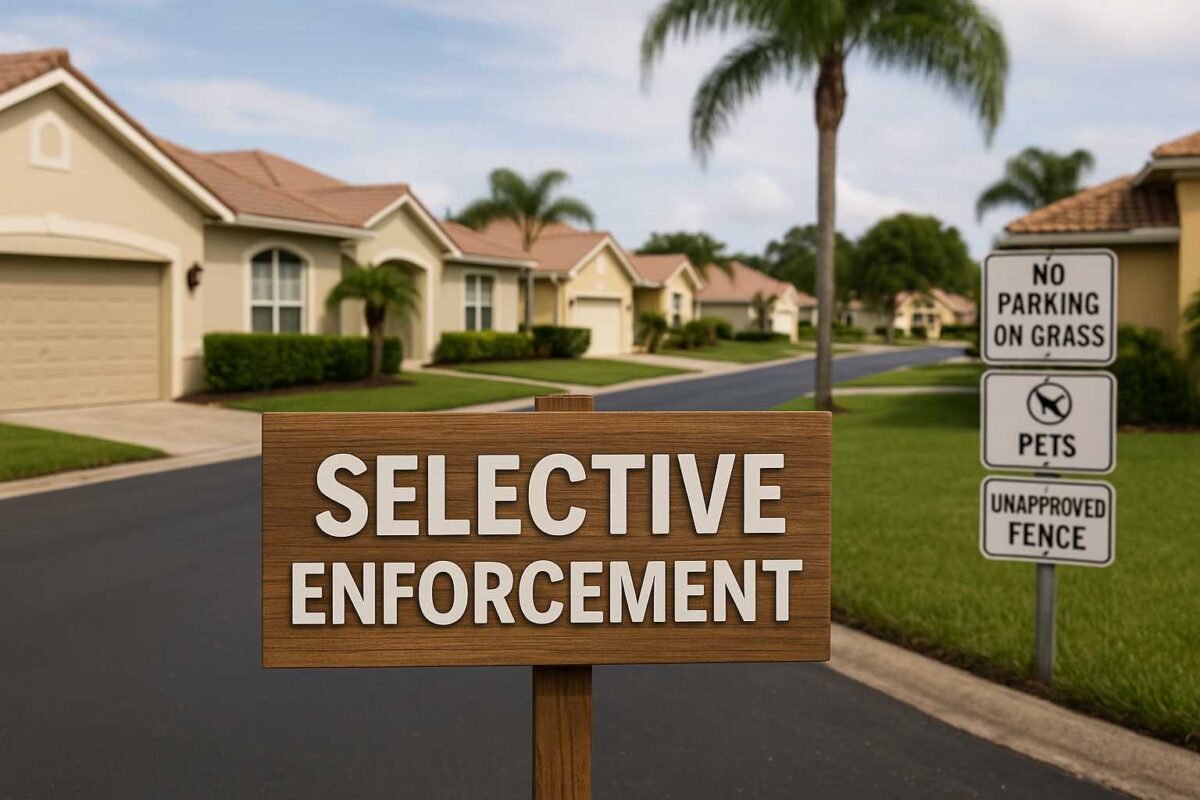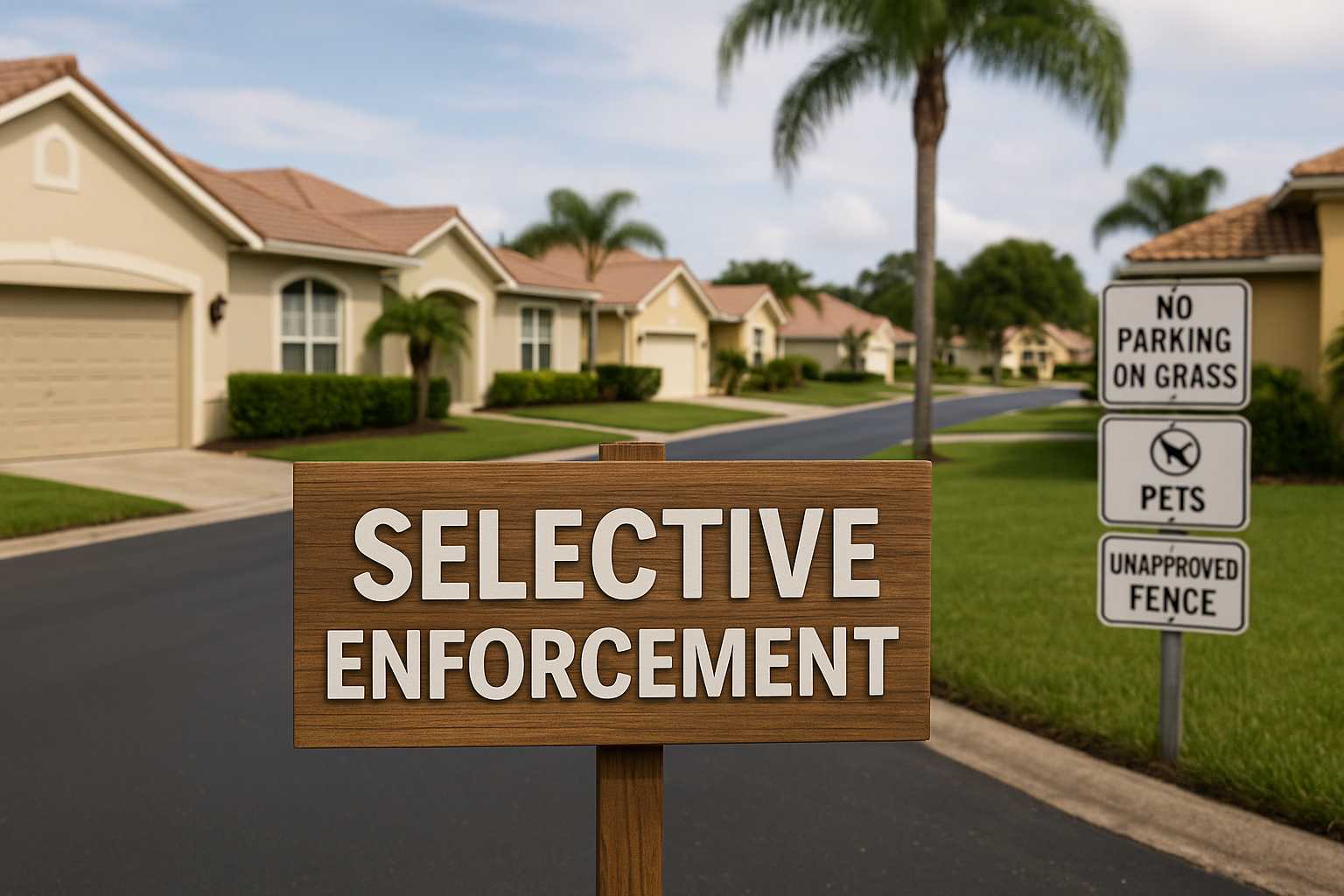
Homeowners’ associations play a significant role in managing communities, and they are entrusted with the responsibility of ensuring that rules are applied fairly and consistently. However, disputes sometimes occur when homeowners believe that the association is not enforcing its covenants or restrictions evenly across the neighborhood. One of the most common complaints involves what is known as “selective enforcement.” Continue reading and reach out to the Florida condo & homeowner association lawyers here at Ansbacher Law to learn more about selective enforcement and what your options are if you think you’re a victim. Here are some of the questions you may have:
What Is Selective Enforcement in an HOA Community?
Selective enforcement occurs when an HOA enforces rules against some homeowners but not others. For example, if one homeowner is cited and fined for having an unapproved fence while another homeowner with the same type of fence is ignored, the association may be accused of acting inconsistently. Another common scenario involves architectural restrictions, parking regulations, or pet policies. When enforcement appears uneven, it often makes homeowners wonder whether the association is acting in good faith.
Courts have recognized selective enforcement as a legitimate defense for homeowners who face HOA lawsuits or penalties. The concept is that covenants and restrictions must be applied uniformly, and associations cannot pick and choose who must comply.
When Can a Homeowner Take Legal Action Against an HOA?
A homeowner may have the right to sue if they can demonstrate that the association has acted in an arbitrary or discriminatory manner. The law generally requires the homeowner to show that the same rules were not enforced against others under similar circumstances. Evidence may include photographs, board meeting minutes, or written records that show how rules have been applied inconsistently.
Before pursuing litigation, many disputes are first addressed through alternative means such as mediation or arbitration. These methods can resolve conflicts more efficiently and with less expense than a lawsuit. However, when selective enforcement is clear and efforts to resolve the issue fail, a homeowner may decide that filing a lawsuit is the only way to protect their rights.
It is important to understand that not every perceived unfairness rises to the level of selective enforcement; a strong case generally requires a clear pattern of unequal treatment.
How Can an HOA Avoid Selective Enforcement Claims?
Associations can protect themselves from lawsuits by applying rules consistently and documenting enforcement actions diligently. Board members should receive training on how to enforce covenants, and decisions should be made with transparency. If a rule is outdated or impractical, the proper approach is to amend the governing documents rather than enforce them against only certain homeowners.
Ultimately, if you believe your HOA is enforcing rules selectively, you should gather evidence and hire a seasoned attorney who can help you decide whether to challenge the association’s actions through negotiation, mediation, or litigation. If you have further questions or would like to speak with a lawyer about your case, simply contact Ansbacher Law today.

